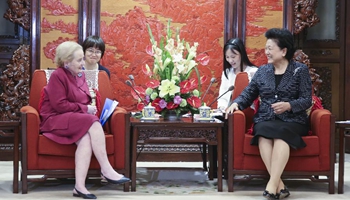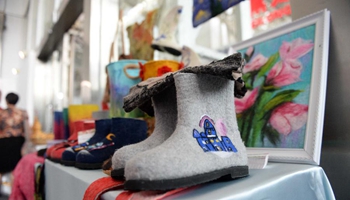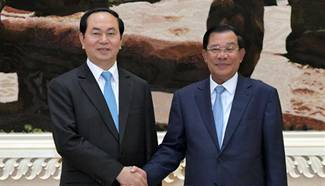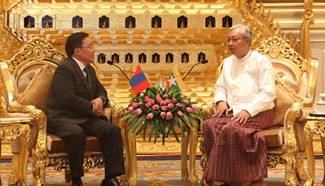(2) Conducting international exchanges and cooperation in the field of human rights
In October 2013, China smoothly underwent the second-round Universal Periodic Review (UPR) held by the UN Human Rights Council, giving a detailed account of developments in China's human rights situation, the challenges it faced and the goals it had set. China seriously studied the proposals put forward by all the other countries. With an open and serious attitude, it actively responded and adopted a total of 204 proposals, accounting for 81 percent of all suggestions, for which China was spoken highly of by all parties. In March 2014, the UN Human Rights Council approved the UPR report on China.
China attended a series of multilateral meetings on human rights issues including the 67th to 70th meetings of the Third Committee of the UN General Assembly, the 20th to 30th meetings of the UN Human Rights Council, and the annual and follow-up sessions of the UN Committee of Non-government Organizations, actively proclaiming its stance and policies on human rights, its opposition to the combining of human rights with politics and double standards, and speaking out boldly to uphold justice for developing countries. China enhanced the UN Human Rights Council Special Procedures to give an equal stress to economic, social and cultural rights, as well as civil and political rights, and carried out work in a fair, objective and non-selective manner. In November 2013, China was elected by a handsome majority as a member of the UN Human Rights Council for the period from 2014 to 2016. In April 2014, China was successfully re-elected as a member of the UN committee of Non-government Organizations.
In February 2012, China and some countries holding similar stances jointly backed the UN General Assembly in approving the resolution on the structural reform of human rights treaties, launching the General Assembly process of the reform. In April 2014, the UN General Assembly approved the reform plan by reaching consensus through consultation. More consensus was reached on the strengthening of treaty bodies' effectiveness, which reflected the concerns of all parties in a much balanced manner.
China continued its cooperation with the Special Procedures of the UN Human Rights Council, answering letters from it in a serious and timely manner, and conducting constructive and interactive dialogue with the UN Human Rights Council and its Special Procedures. China played host to a working group from the UN Human Rights Council on the elimination of discrimination against women in both law and practice and independent experts on the influence of foreign debt on human rights respectively in December 2013 and June 2015.
China continued to hold dialogues and exchanges on human rights with various countries on the basis of equality and mutual respect. Since June 2012, China has held more than 20 dialogues on human rights with the United States, the European Union, the United Kingdom, Germany, Australia and Switzerland; conducted exchanges with legal experts from the US; launched technical cooperation on human rights with Australia and twice received the EU Special Representative for Human Rights. China conducted over 10 consultations and exchanges on human rights with Russia, Brazil, Pakistan, Cuba, Belarus, Laos and Sri Lanka. The State Council Information Office twice sent human rights delegations to visit the US, Canada, Brazil and Mexico, respectively in 2014 and 2015, conducting exchanges and cooperation on human rights.
In September 2015, China and UN Women jointly held the Global Leaders' Meeting on Gender Equality and Women's Empowerment, with more than 80 state leaders participating in the conference. During the summit, China stated its opinions on women-related issues and made an important promise to enhance gender equality and improve women's status. China also took a constructive part in a series of multilateral international meetings including meetings of the UN Committee on Social Development and the high-level meeting of the UN General Assembly on disability and development, and actively participated in the discussions and resolution consultations on issues about people with disabilities. Since 2012, China has participated in regional and sub-regional exchange activities on human rights including the 12th to 15th Asia-Europe Meeting (ASEM) Informal Forums on Human Rights, conducting exchanges with over 40 Asian and European countries.
From 2012 to 2015, China's NGOs, including China NGO Network for International Exchanges, dispatched delegations to the 19th to 30th sessions of the UN Human Rights Council. The China Society for Human Rights Studies and China Human Rights Development Foundation jointly held the "Beijing Forum on Human Rights" on four occasions, each of which attracted high-level officials on human rights, experts and scholars and those in charge of related institutions from over 30 countries and regions.











